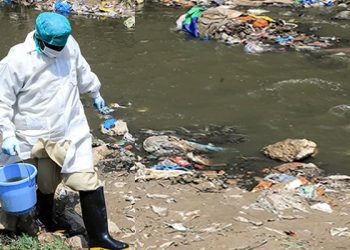One environmental sample collected from Peshawar district of Khyber Pakhtunkhwa province have tested positive for wild poliovirus.
In a concerning development, the polio virus has once again been detected in environmental samples in the Nade Khar area of Peshawar.
This marks the fourth time this year that the virus has been identified in the region.
So far, the wild has been detected in at least twelve environmental samples across the country.
Officials from the anti-polio program have revealed that the genetic makeup of the poliovirus found in Pakistan bears striking similarities to the virus circulating in neighboring Nangarhar province of Afghanistan.
This has prompted concerns about cross-border transmission.
Polio, caused by the highly infectious poliovirus, is an incurable disease that primarily targets young children, particularly those under the age of five.
The virus attacks the nervous system and can lead to paralysis or fatalities in severe cases.
Although there is no known cure for polio, the most efficient method of safeguarding children is through repeated vaccination.
The polio vaccine has been instrumental in shielding millions of children from this disease, leading to the majority of countries worldwide becoming polio-free.
However, Pakistan and Afghanistan remain the sole two endemic countries where polio is still prevalent.


















































